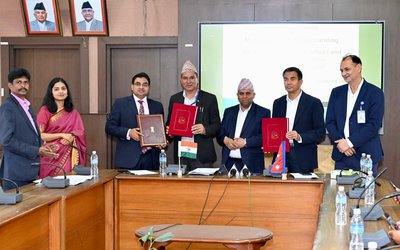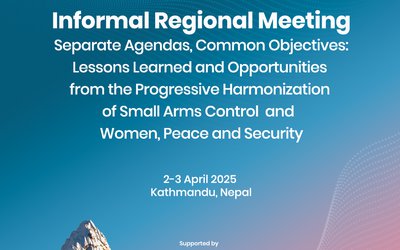
Neelu Thapa, Programme Coordinator, SAWTEE said that women are left more vulnerable after the 2015 Gorkha earthquake due to loss of livelihoods and increased risk to sexual and reproductive well-being.
Presenting paper, Thapa pointed out that government and National Reconstruction Authority’s attempt at making the reconstruction policies gender-responsive has helped promoting opportunities for women but women still find accessing relief and reconstruction efforts difficult due to social, cultural and political biases.
According to the paper, 56 percent of fatalities were women. The finding includes two-third of the existing basic emergency obstetric and neonatal care sites or birthing centres in the affected areas were damaged; in the year following the earthquake 23,000 cases of trafficking or attempts to traffic were reported; more than 40,000 women were considered to be in danger of sexual violence; estimated loss to women’s livelihood due to earthquake was approximately NPR 15 billion, among others.
Commenting on presentation experts expressed the views that a need for gender-responsive disaster risk reduction and recovery policies was stressed in an interaction programme today as existing gender disparities put women in disadvantage to withstand disasters and their impacts.
Chandni Joshi, Chairman of Homenet South Asia opined that why the social construct that ascribes certain roles to women renders them vulnerable needs to be analyzed to make women resilient.
Nirmala Dhungana, President, Women for Human Rights, called attention to multiple burdens faced by women during the earthquake when they were homeless but had to care for young children and elderly family members while simultaneously looking for income opportunities, more so in the migrant households.She also pointed out how the disaster has led to increasing in trafficking cases, especially among young children.
Bhubaneswari Parajuli, Gender, Social and Environment Management Specialist, National Society for Earthquake Technology (NSET) pointed out that reconstruction could be an opportunity to bridge social and technical aspects by incorporating gender concerns in the policies.
She pointed out that coping mechanism of women and their networks, such as AamaSamuha, at the face of disaster are exemplary. Women should be made an integral part of community disaster preparedness by strengthening them at an individual level.
Dr.Renuka Joshi, Professor at the Padma Kanya Campus emphasized on the continued discourse regarding gender concerns in the disasters risk reduction and reconstruction so that Nepal can be better ready to withstand fallout of the future disasters.
This is such eighth discussion forum organized by SAWTEE under the project ‘Initiating dialogue on Post Disaster Reconstruction Experience’ undertaken with support from The Asia Foundation (TAF).
“SAWTEE has undertaken similar discussion forums related to post-disaster reconstruction under themes such as labour migration, expenditure tracking, urban spaces, conflict resolution”, said a press release issued by SAWTEE.
- IWMMI: Water Resilience Tracker
- Apr 02, 2025
- Nepal-India Signed Memorandum of Understanding (MoU) For 10 Projects
- Apr 02, 2025
- UNRCPD To Host Confernce On Small Arms
- Apr 02, 2025
- Weather Forecast: Partly Cloudy In Kathmandu And Pokhara
- Apr 02, 2025
- Winter Session Of Parliament Ends
- Apr 01, 2025













